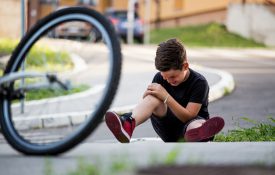-
Your baby is doing little physics experiments all the time, according to a new study
The Washington Post: When an infant sees an object behave in a surprising way, she does everything she can to learn more about its mysteries, and the initial surprise ends up helping her learn. A
-
Poverty may affect the growth of children’s brains
Science: Stark and rising inequality plagues many countries, including the United States, and politicians, economists, and—fortunately—scientists, are debating its causes and solutions. But inequality’s effects may go beyond simple access to opportunity: a new study finds
-
Bystander Effect Also Found Among Five-Year-Olds
Pacific Standard: The bystander effect, which was first identified in the late 1960s, describes a fascinating quirk of human behavior: Our level of altruistic behavior depends, in large part, to the circumstances we find ourselves
-
Feigenson, Niv Receive NAS Troland Award
Lisa Feigenson and Yael Niv have been named the 2015 recipients of the Troland Research Awards, two $75,000 prizes given each year by the National Academy of Sciences to recognize young investigators for extraordinary achievement
-
Aggressive boys grow into strong men
The Boston Globe: AGGRESSIVE PEOPLE SHOULD also be strong; otherwise, they might pick a fight they can’t win. But this raises an interesting chicken/egg problem: Do aggressive people start out strong and learn later that
-

Children Less Likely to Come to the Rescue When Others Are Available
Children as young as 5 are less likely to help a person in need when other children are present and available to help.

